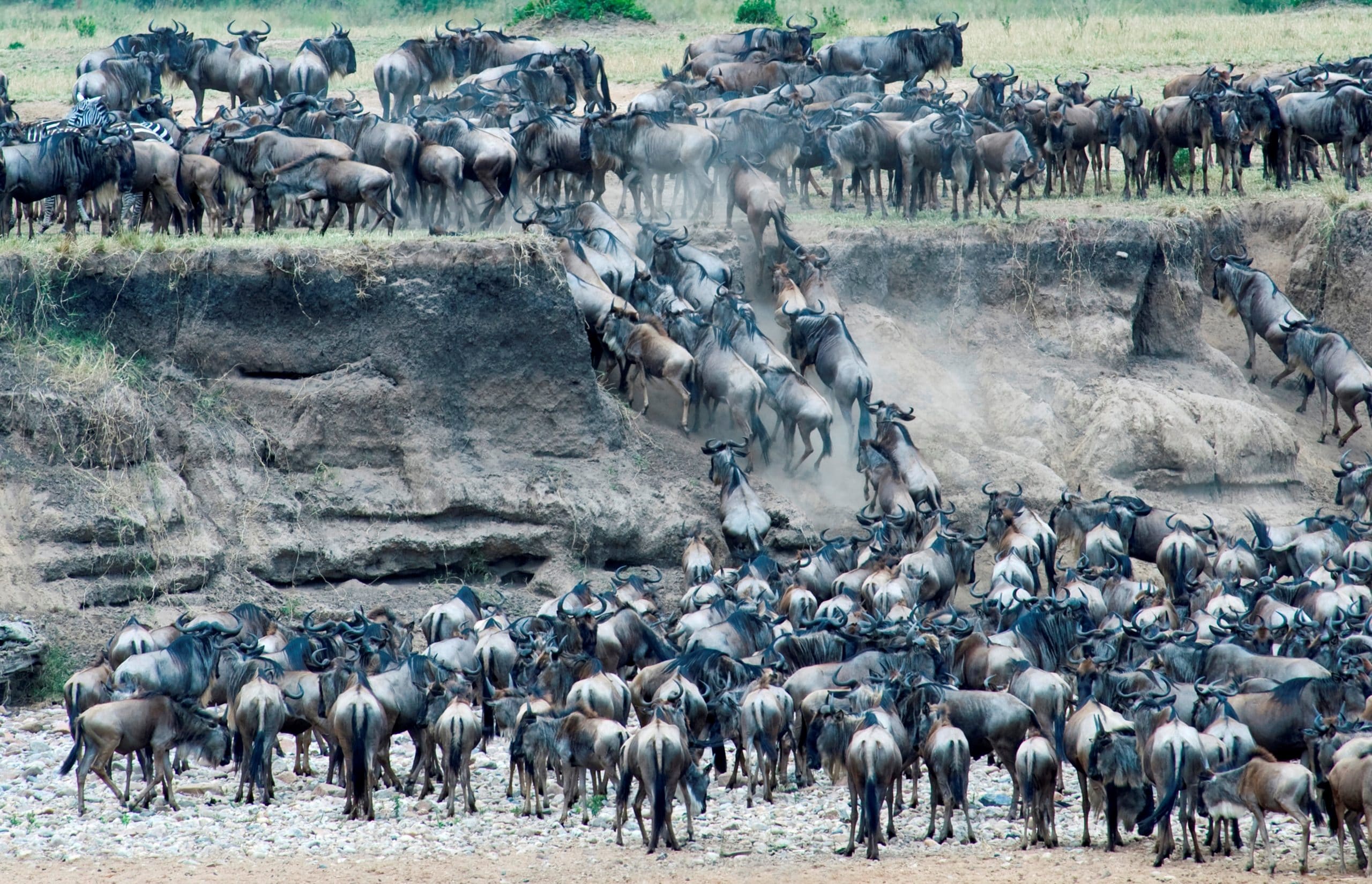The rumblings of Covid-19’s devastating impact on the tourism industry could be felt deep in Tanzania’s wildlife parks too, where this year, few arrived to witness the annual wildebeest migration.
July at the Serengeti National Park in Tanzania was a different experience this year. The unending savannah looked the same, the animals roamed in their natural habitat and the wildebeest set out to migrate in vast numbers as they do this time every year. But it was the silence that was deafening. Normally, at this time, every year, the park is a magnet for international tourists eager to witness the largest animal migration in the world.
This park was eerily empty, and I was the only guest at the camp I stayed at.
Having gone on safari many times, including to the Maasai Mara on the Kenyan side of the park, and to other parks in East and West Africa, this experience was humbling. Covid-19’s devastating impact on the tourism industry could be felt here too, as tour operators and other stakeholders pivoted in unexpected ways to focus on the domestic market.
The Mbalageti Safari Camp, the property I stayed at, in any other year, attracts at least 75% of the tourists who arrive to see the wildebeest migration. The camp is located on a hill overlooking the Mbalageti River and is one of 37 permanent camps in the park. This time period coincides with not only the annual migration in the Western Corridor, but also the summer vacation period in the United States and Europe, from where most tourists normally arrive.
Loading...
Shamez Karmali, the sales and marketing director at Mbalageti, admits: “We have seen guest volumes drop by over 90% during this high season… we have been forced to reduce our on-site headcount, due to lack of necessity, as well as manage costs.” In an effort to revive the industry, many local tour and safari operators have had to drop prices, to make these experiences more affordable for the price-sensitive local market. They are hopeful things will pick up once people regain confidence in international travel.
For locals like me, the reduced prices and slow tourist traffic, proved to be advantageous at this time, especially since outbound travel is still not an option due to the pandemic.
A possible boom in domestic tourism was wholly unexpected when Karmali drew up operational expectations for the year at Mbalageti, and he fully believes this to be the case industry-wide.
Even with the current travel restrictions in place across the globe, Tanzania has opened its borders to tourists. But in the short time the borders were closed, the positive impact of it was that many shortcomings in the industry were brought to light, says Collin Fortes, a director at Fortes Africa Ltd, which both the private sector and government have worked to address. One of the key issues was health and safety. The government provided training sessions for stakeholders on how to go about making this better, which in turn has improved the outlook on providing better customer service, especially since competition is now at its peak, adds Fortes. Fortes has since seen a rise in self-drive safari and camping requests from international tourists, but adds these are not ideal conditions for tourists who want a relaxing holiday.
The future of the tourism industry remains uncertain. Fortes and others like him have been inspired to get creative and market packages in line with the domestic market. “The current market conditions would not allow us to be viable if they persist for a prolonged period,” rues Karmali.
But for the mighty wildebeest, migrating across the ecosystems, it was business as usual.
-By Inaara Gangji
Loading...
